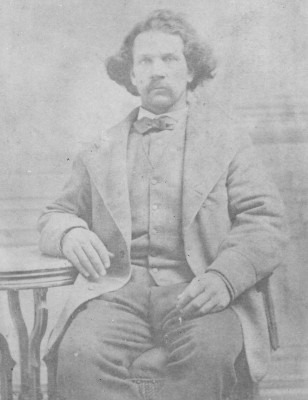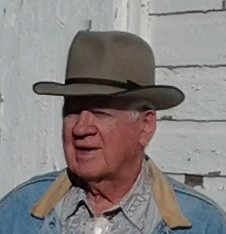Untold stories from one of the oldest continuously operated family ranches in the Flint Hills, and the entire state of Kansas, will be highlighted during a special program this Saturday, Jan. 4.
“It’ll be the second in the Ranching Heritage Prairie Talk Series at Pioneer Bluffs near Matfield Green in southern Chase County,” announced Lynn Smith, executive director of the National Register Historic District.
The story of Pioneer Bluffs began in 1859 when Charles Rogler, a young Austrian immigrant, walked from Iowa to build a new life in Kansas. Charles’ son, Henry, and in turn a grandson, Wayne, later took the reins, making the farm/ranch operation, one of the most well- respected in the region.
“Today, Pioneer Bluffs, with a classic early 1900s farm house, barns, and distinctive mile-long limestone fence, is a nonprofit organization that carries on the Rogler legacy of respecting the land, preserving history, and engaging community with today’s pioneers,” Smith explained.
“Jim Hoy and Tom Burton, who had worked for Wayne Rogler, shared stories, legends, and anecdotes of the Rogler family for the first presentation in the Prairie Talk Series,” she said.
“This Saturday afternoon’s program, at 1:30, will feature Pat Sauble, 92, sharing the heritage, starting in 1856, of his family’s Flint Hills ranch near Cedar Point, where he still lives today,” according to Smith.

It was five years prior to the Civil War, the spring of 1856, when David Sauble’s mother gave her 19-year-old son a gold coin to buy sugar she needed to make jelly. He mounted his Morgan horse and set off for nearby Baltimore, Maryland.
Along the way, David Sauble met up with his good friend, Pete Hoover, and on that ride they made a choice that would forever alter their lives. When they arrived in Baltimore, the teenagers told the shopkeeper to send the sugar back home, because “the urge to go West had struck.”
That journey west took David and Pete to Kansas, where they stayed for a winter that lasted a lifetime. David Sauble staked his claim at Cedar Point in late 1856.
Today, David Sauble ‘s grandson, Pat Sauble, a cowboy at the family ranch his entire life, lives in the majestic stone home and barn built in the 1800s from limestone quarried at the ranch, possibly the oldest continuously family-operated ranch in the state.
“I want to know why a damn ol’ cowboy got into the chicken business?” the Kansas
Secretary of Agriculture asked Pat Sauble in 1960.
“That ol’ cowboy (Pat Sauble) will reveal his answer to the inquiry from a half century ago, and has even more stories to share during Saturday afternoon’s program,” Smith promised.
This talk will unveil a fascinating history of how David Sauble was struck by lightning when he went to order lumber to build a new school; stories of when Native Americans camped at Miller’s Spring on the ranch; and the days of raising and grazing cattle before fences separated ownership-properties.
According to Smith, “Pat knows all about grass-fat cattle, a land of good grass and bountiful water, and a time when ‘the crick dried up and corn didn’t get knee-hi.’ He has seen droughts, floods, and the Dust Bowl.”

Of his impetuous childhood, Pat Sauble reflected: “They let us out of school when it got dark from the heavy dust. We’d just put our handkerchiefs over our noses, go out and play baseball.”
“Pat Sauble has a rich history to share of raising families, cattle, crops, chickens, more than 60,000 laying hens at one time, and an enduring legacy of conservation and community commitment. He’ll bring more than 150 years of photos and memories to Pioneer Bluffs for this community discussion,” Smith said
“The Prairie Talk series offers programs on history, farming, ranching, ecology, heritage, and sustainability. Please join us for these free discussions with families who have been ranching for generations. You will experience the rich and fascinating history of cowboys, cattle, and community,” Smith invited.
Upcoming talks include the Mercer family on February 1, and the Moxley family on March 1. Exact location of Pioneer Bluffs is 695 Kansas Highway 177, Matfield Green, Kansas, 66862, with information available from Smith at 620-753-3484, or lynn@pioneerbluffs.org.